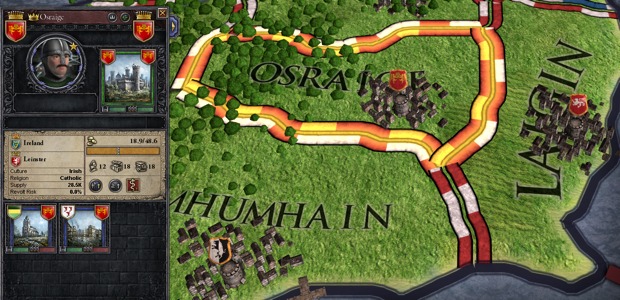

Let’s Talk About Sects. Monks and Mystics Coming to CK2
Newest Expansion to Crusader Kings Increases Your Faith
STOCKHOLM – 2 December 2016 – The bells of the abbey summon monks to prayer while, a continent away, the faithful are summoned by a muezzin’s call. Religious practice imposes a schedule on the chaos of medieval life, and the routine adds harmony to a divided realm.
Routine and harmony. We can’t have that, can we?
https://www.youtube.com/watch?v=XWEMq0JiB0Y
Monks and Mystics is the latest expansion to Crusader Kings II, the hit medieval grand strategy role-playing game from Paradox Development Studio. In Monks and Mystics, the religious aspect of the game is further explored with new mechanics and character associations that can tie a faith closer together or render it asunder.
The major feature of Monks and Mystics is the addition of Societies – secret and otherwise. Characters can join monastic orders, secret cults and Gnostic heresies. As the society gains members, it gains power and prestige for its leaders. Societies open new actions for characters and can lead to new event paths.
Monks and Mystics includes:
Monastic Orders: With lay offices available to non-clerical characters, monastic orders will increase your character’s piety - but they have expectations.
Cults: Gnostic heresies may flourish and its is rumored that the worship of Satan continues in the darkened fringes of the world
Climb the Ranks: Characters work their way up the ladder of Societies, unlocking new abilities and triggering new event chains
Hunt for Heretics: Send your chaplain out to find secret societies that undermine the holy church and your realm. But what if the hunter is guilty himself?
Other New Councillor Actions: Your councillors have a fourth action that will make them more powerful and integral to sound rulership
And much more: Assassins, archaeological expeditions, holy relics, great treasures and more
Crusader Kings II: Monks and Mystics is coming soon to major digital retailers, including the Paradox Store.









